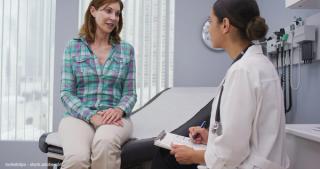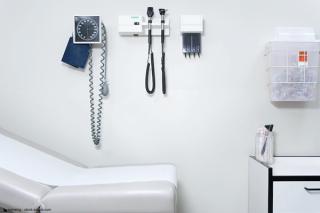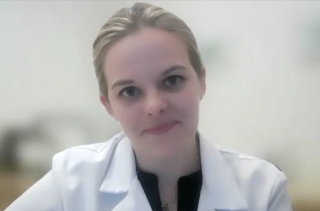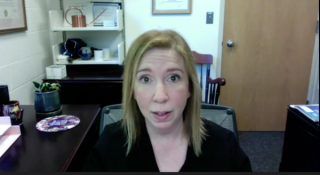
Female Urology
Latest News
Atlanta-Bisphosphonates have already been shown to reduce loss of bone mineral density (BMD) in men undergoing androgen deprivation therapy and to reduce skeletal events and markers of bone turnover in men with metastatic prostate cancer. However, the drugs carry risks and can be expensive. That's why Dror Michaelson, MD, PhD, an assistant in medicine at Massachusetts General Hospital and instructor at Harvard Medical School, Boston, examined the effects of zoledronic acid (Zometa) in a once-annual dosing schedule that is much reduced compared with that used in past trials.
Latest Videos

CME Content
More News

From the genetic basis of male reproductive dysfunction to the psychology of those who suffer from it, men who experience infertility issues continue to benefit from research into all facets of the condition.

Atlanta-The idea that abuse plays a role in pelvic pain syndromes in women has been a controversial one. Now, another study is adding to that debate.

Heat sensitivity may make testicular cancer, and possibly other malignancies, more susceptible to standard treatments and die off more readily, according to a commentary in last week's JAMA (2006; 296:445-8).

Malvern, PA and Woodstock, GA-The new LithoGold spark gap shockwave lilthotripsy unit from Siemens Medical Solutions, USA, and Shockwave Technical Service, a division of Tissue Regeneration Technologies, LLC, is built into the housing of the Siemens Modularis system, ensuring compatibility with Siemens' C-arms and the Modularis table. The unit incorporates the STS SmartTrode intelligent electrode, which automatically adjusts to the specified energy level. FDA 510(k) review is pending.

Atlanta-In a recent study of nearly 6,500 men treated for localized pros-tate cancer, researchers found that being obese did not significantly affect the need for secondary treatment, nor did it result in decreased overall or disease-specific survival.

Chicago-A widely studied protein can help urologists find sperm to be used for in vitro fertilization and may even indicate another future pharmaceutical application of the substance, according to research presented here at the American Society of Andrology annual meeting here.

Among the more than 1,700 scientific papers presented at the 2006 AUA annual meeting, the focus was less on new medical or procedural innovations than on the benefits and risks of current tests and therapies.

Atlanta-Men who are being treated with androgen deprivation therapy for progressive prostate cancer face a second, less-recognized risk: osteoporosis and bone fracture. An initial report from a 2-year trial shows that weekly treatment with the oral bisphosphonate alendronate (Fosamax) can halt and even reverse the bone loss associated with androgen deprivation therapy.

The FDA recently approved a new delivery system for the antibioticcefoxitin, which is indicated for the treatment of urinary tractinfections, gynecologic infections (eg, pelvic inflammatorydisease), and a number of other common infections.

Cook Urological introduced on Tuesday a new biomaterial known asSurgisis ES for the treatment of Peyronie's disease. Surgisis ES isa natural biomaterial that provides a graft that is strong, easy tohandle, easy to use, and biocompatible, the company said. Itsupports the growth of new fully vascularized host tissue in thepenis.

Two separate studies have found that men and women dealing withinfertility suffer from depression and anxiety at a greater ratethan the general population.

Cryoablation is a feasible treatment option in patients who havefailed radiotherapy, especially in those who may not be consideredsuitable surgical candidates for salvage radical prostatectomy,according to a new study.

Chad Wallis, MD, pediatric urology fellow at the Hospital for SickChildren, Toronto, accepts congratulations from Catherine R.deVries, MD, president of International Volunteers in Urology, atthe IVU Traveling Urology Resident Scholar Reception Mondayevening.

AUA has established the Department of Reimbursement and RegulatoryAffairs to more effectively target resources and advocacy effortsfor its members. Nancy K. Edwards, currently AUA reimbursementsystems project manager, will become its director.

Alendronate (Fosamax), a bisphosphonate commonly used to treatosteoporosis in postmenopausal women, has been shown to halt andreverse bone loss associated with androgen deprivation therapy inmen with prostate cancer.

Complications resulting from sling surgery for stress urinaryincontinence may happen far more frequently than is reported in theliterature, data from UCLA suggest.

Brisbane, Australia-A diverse array of difficult stone cases discussed at the Urological Society of Australasia meeting here made two points very clear. First, no single treatment strategy will be appropriate for every case. Second, treatment approach should be decided upon only after comprehensively reviewing multiple factors, including the patient's age, weight, general health, and comorbidities in addition to stone size, number, and location.

The major discussions of advances in understanding and treating BPHmay take place in the hallways rather than in the official meetingrooms during this month's AUA annual meeting, Claus G. Roehrborn,MD, professor and chairman of the department of urology at theUniversity of Texas Southwestern Medical Center, Dallas, toldUrology Times.

It's safe to say that when the sequencing of the human genome wascompleted in April 2003, the diagnosis and treatment of maleinfertility was turned on its ear.

Bethesda, MD-A 2005 study from the large-scale, NIH-sponsoredWomen's Health Initiative (WHI) found that not only does hormonetherapy not relieve urinary incontinence in postmenopausal women,but estrogen (when taken alone) also doubles the risk ofincontinence in women who did not have it before they startedtherapy.

Iowa City, IA-A neural network that takes into accountmaternal age, sperm retrieval technique, type of sperm used, andtype of male factor has been found to be clinically useful forpredicting the outcome of in vitro fertilization/intracytoplasmicsperm injection.

A drug typically used to treat osteoporosis has a potential clinical benefit in treating men with prostate cancer, according to researchers at the Louis Warschaw Prostate Cancer Center at Cedars-Sinai Medical Center, Los Angeles.

Washington--Even after surgical ablation, posterior urethral valves (PUVs) in boys can cause bladder and kidney problems in later years. But now, for the first time, a team of pediatric urologists has shown that PUVs also can affect sex accessory glands and, ultimately, fertility. Justine M. Schober, MD, a pediatric urologist at Hamot Medical Center, Erie, PA, reported the group's findings here at the 2005 American Academy of Pediatrics Section on Urology annual meeting.

Beaver Creek, CO--Intermittent androgen suppression (IAS) is reported to be beneficial in select men with advanced prostate cancer, although definitive data are not yet available.

San Francisco--A never-before-seen virus associated with prostate cancer suggests that infection may play a role in the development of the disease in genetically susceptible individuals. The new virus, XMRV, is 25 times more likely to be present in prostate cancer patients with a specific genetic mutation than it is in the general male population, researchers reported at the American Society of Clinical Oncology 2006 Prostate Cancer Symposium here.










